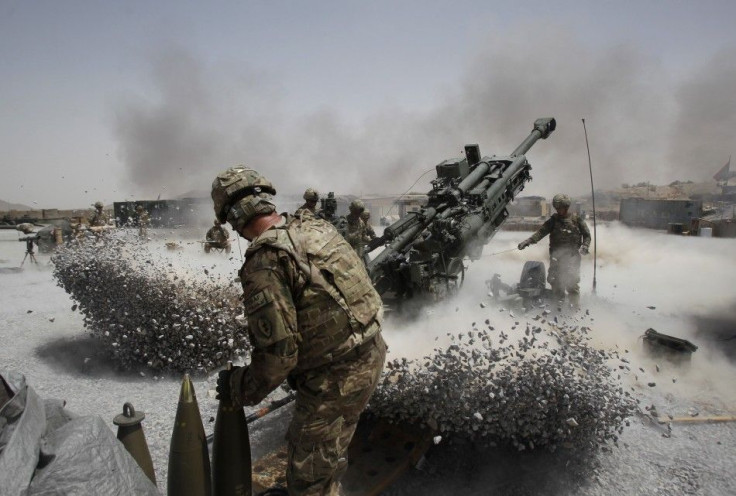Afghanistan War: Should Congress Re-Establish the Military Draft to Win It?

With the nation's policy-makers finally focusing on ideas -- both public and private -- that will jump-start job growth to help create the millions of new jobs the U.S. needs, it doesn't seem prudent to distract them with a foreign policy idea.
Unless, of course, that foreign policy idea can both help address the jobs scarcity issue and address a foreign policy concern, and that can be accomplished by -- you guessed it -- a U.S military draft.
You read correctly: The U.S. should consider re-starting the military draft. Here's why:
1. A large troop presence is needed, militarily, to win the Afghanistan War. As the Interntational Business Times reported Friday, despite 10 years of fighting, the United States' goal of rooting out the Taliban is only half-accomplished, at best.
The Allies have about 131,000 troops stationed in Afghanistan, of which 90,000 are U.S. Armed Forces.
Further, unless there is a substantial change in battlefield conditions -- such as a decision by the Taliban to surrender (not likely) -- the American campaign in Afghanistan will likely not lead to an overwhelming victory in the next year.
The terrain and the slow pace of Afghanistan armed forces and civil service formation have resulted in slow, incremental, mixed-results progress in Afghanistan for the Allies. In other words, the reality of the facts on the ground, to borrow a phrase from former Israeli Prime Minister and General Ariel Sharon, is that it's highly unlikely that 90,000 U.S. troops will be sufficient to achieve the sought victory.
Further, when one adds NATO's reluctance to commit new troops, that means more U.S. troops will be needed, and implementing a U.S. draft would meet that need.
The U.S. will probably need about 200,000 to 250,000 more troops to decisively win the Afghanistan campaign in the next two years.
If it does not substantially increase the number of troops deployed, it will probably suffer the fate of the Soviet Union in Afghanistan.
2. A U.S. military draft is the only fair policy, in terms of individual sacrifice for our nation, and our freedoms. Currently, U.S. Armed Forces are volunteer-only. Implementing a military draft will guarantee that all levels of society -- from adult kids of corporate executives to adult kids of auto mechanics -- serve and defend freedom and our nation in Afghanistan. A military draft is the most democratic way to apportion the human cost of war.
In other words, a military draft would make sure that upper-income Americans fight in war in roughly the same proportion as lower-income Americans -- a policy that should have been the norm at the start of the conflict.
By drafting rich sons and daughters as much as poor sons and daughters, the U.S. Congress will obtain a more clear picture on the true human cost of war.
Also: A special income tax surcharge should also be passed to pay for the new 200,000 to 250,000 troops the draft would conscript, and to pay for current annual war expenditures.
To date, the United States has spent $450 billion on the Afghanistan War -- all borrowed. In other words, the war has been funded by a credit card; it's added to the national debt.
Normally, when the U.S. goes to war, it passes a tax to pay for that war: the nation didn't this time and, in addition to increasing the national debt, it did not require civilians to make a sacrifice to contribute to the task of achieving victory -- and that stance is not appropriate given the huge sacrifice of our brave men and women in uniform are making.
Therefore, Congress should immediately pass a 1 to 3 percentage point increase in the federal income tax to pay for the Afghanistan campaign.
3. Drafting 200,000 to 250,000 men/women will increase GDP. Finally, and least important, drafting 200,000 to 250,000 U.S. men and women will also increase GDP growth, as a result of the spin-off effect from their military pay, and as a result of armaments and equipment purchased to support them.
Afghanistan War: 10 Years and Counting
If the United States is not prepared to substantially increase its troop presence in Afghanistan, implement a fair draft policy that calls men and women from every level of society to serve, and pass a special income tax surcharge to pay for the war, it will have not made the national commitment to win.
And if that's the case, the United States should then do the only rational thing: it should withdraw from Afghanistan.
© Copyright IBTimes 2024. All rights reserved.





















